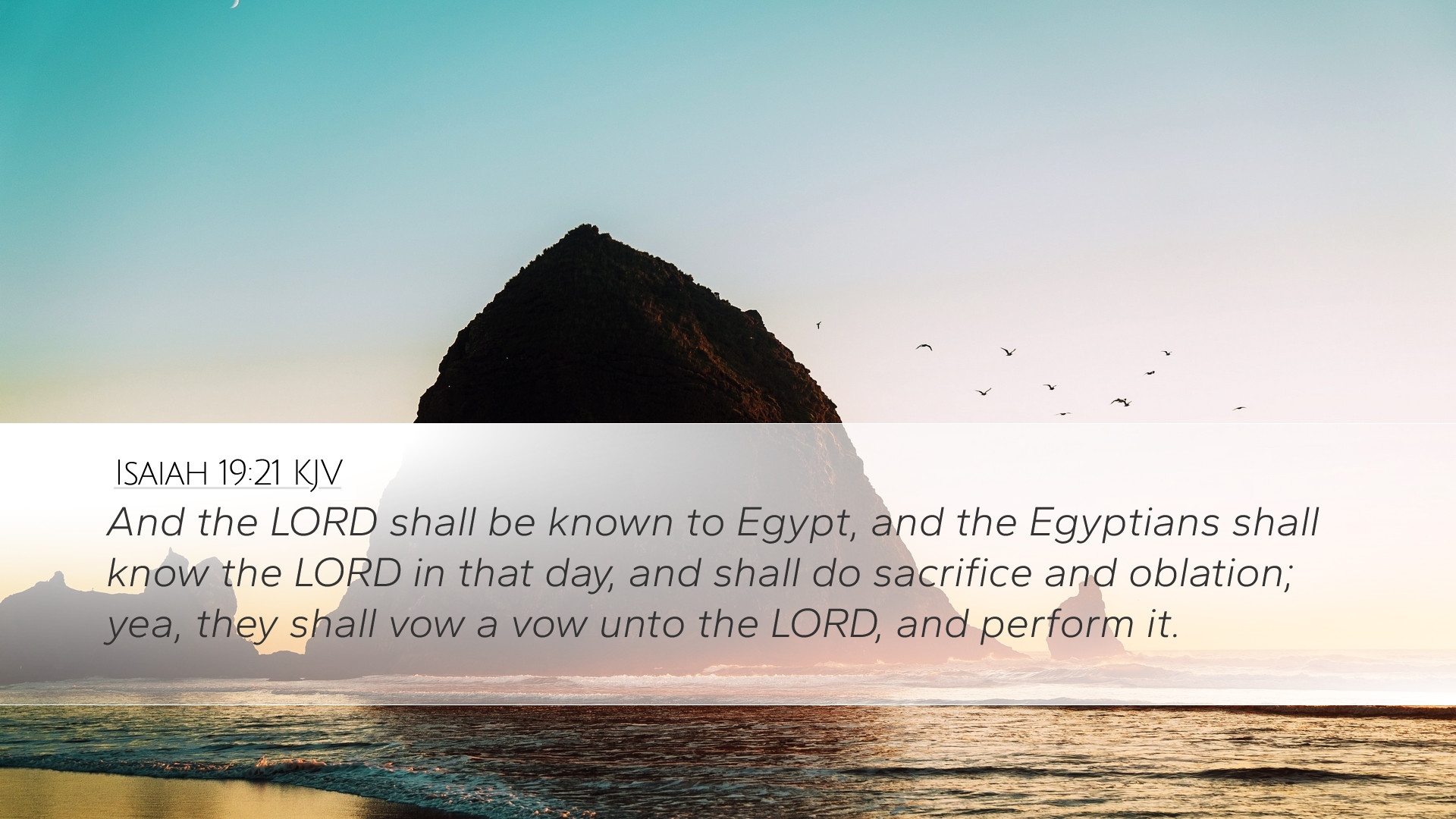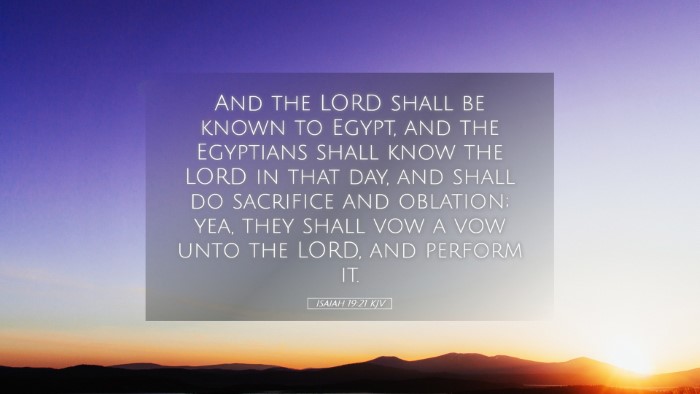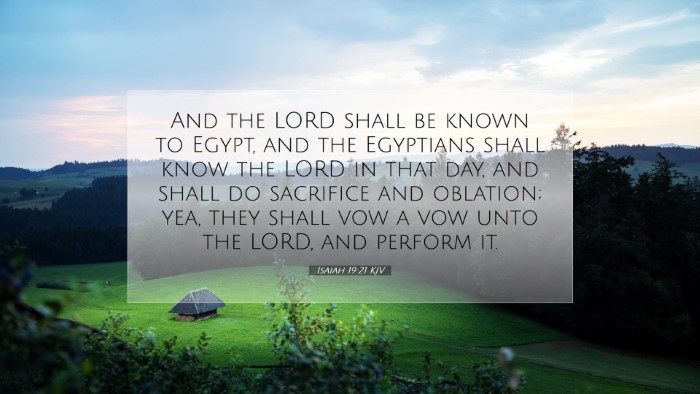Commentary on Isaiah 19:21
Verse: Isaiah 19:21 - "And the LORD shall be known to Egypt, and the Egyptians shall know the LORD in that day, and shall do sacrifice and oblation; yea, they shall vow a vow unto the LORD and perform it."
Introduction
This verse from the Book of Isaiah is a profound statement about the future relationship between God and Egypt. It conveys themes of recognition, worship, and the transformative power of divine intervention in the lives of nations. Commentaries on this verse accentuate its theological implications and prophetic significance for understanding God's universal plan of salvation.
General Context
This passage is situated within a broader prophecy concerning Egypt and showcases Isaiah’s messaging of judgment followed by restoration. Egypt, often seen as a symbol of oppression and idolatry in the Old Testament, is prophesied to experience a radical spiritual transformation.
Insights from Matthew Henry
Matthew Henry emphasizes that this verse signifies the time when the Egyptians will recognize the true God. He notes that the phrase "shall know the LORD" implies not just an intellectual acknowledgment, but a deep-seated recognition that leads to worship and devotion.
Henry highlights the significance of sacrifice and oblation, suggesting that these acts will be expressions of genuine faith rather than mere ritualism. He argues that this transformation illustrates God's mercy and willingness to reach even the most unlikely nations.
Insights from Albert Barnes
Albert Barnes provides insightful nuances about the phrase "in that day," which he interprets as referring to the time of the Messiah. Barnes formulates this with a prophetic outlook and suggests that the acknowledgment of the true God will transcend into the age of the new covenant.
He elaborates on how this recognition will manifest in practical terms, with sacrifices and vows, which reflect a heart genuinely changed. Barnes emphasizes that this turning to God symbolizes a complete reversal of national character from idolatry to true worship.
Insights from Adam Clarke
Adam Clarke offers a meticulous examination of the Hebrew structure of the verse, accentuating the depth of the term "know." He argues that it involves a relational aspect, indicating a personal and covenantal encounter with God. Clarke posits that this knowing will lead Egyptians to be changed in heart and conduct.
Clarke points out the significance of vowing vows, which speaks to a commitment beyond individual acknowledgment — it indicates corporate recognition and worship. He underlines that this corporate worship denotes a revolutionary change in the spiritual landscape of nations.
Theological Implications
The theological implications of Isaiah 19:21 are rich and multifaceted:
- Universal Acknowledgment of God: The verse points to a future where God's sovereignty is recognized across national boundaries, signaling a universal dimension of divine revelation.
- Repentance and Restoration: The act of Egyptians sacrificing and vowing signifies repentance, demonstrating how nations can turn from falsehood to faithfulness.
- Hope for Nations: The promise of Egypt knowing the Lord serves as encouragement that no nation is beyond the reach of God's grace and mercy.
- The Covenantal Aspect: The reference to vows indicates a relationship covenant, emphasizing commitments made by both the people and God.
Conclusion
In summary, Isaiah 19:21 offers a compelling prophecy regarding Egypt’s transformation, which serves as a paradigm for understanding God’s redemptive plans for all nations. Through the insights of Matthew Henry, Albert Barnes, and Adam Clarke, it is evident that this verse heralds a time of reconciliation, acknowledgment, and worship. As such, it carries profound significance for pastors, students, theologians, and Bible scholars alike, calling them to consider the expansive nature of God’s grace and the hopeful vision for the nations as they turn to Him.


